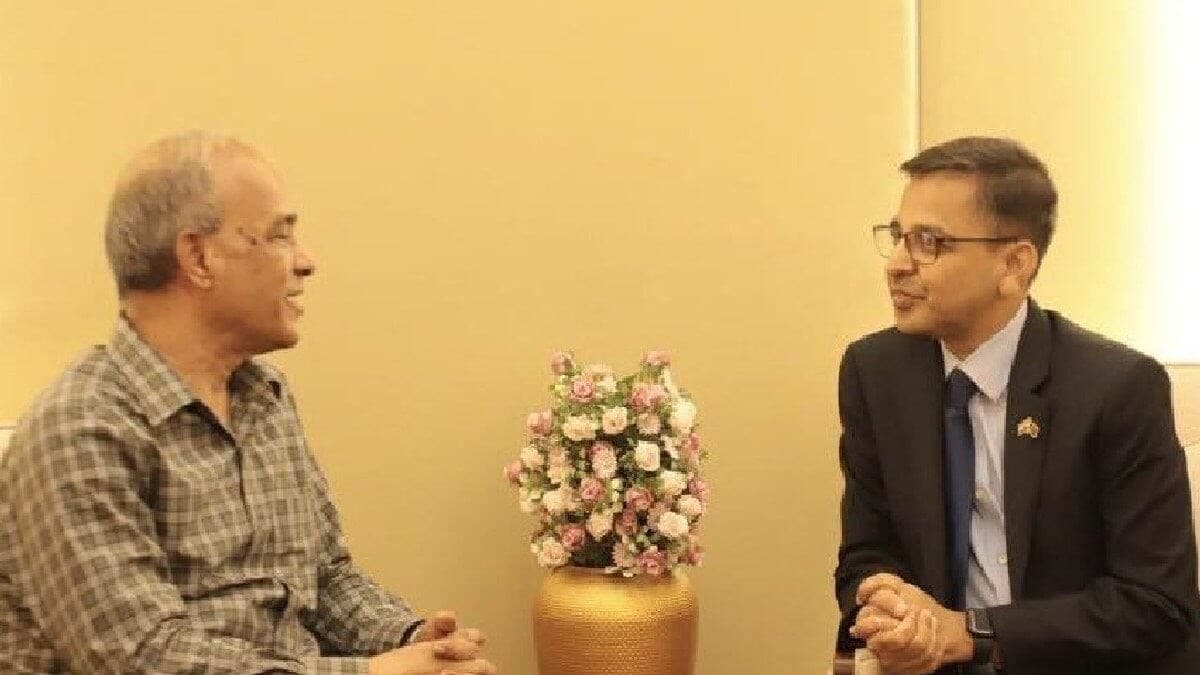
Bangladesh urges 'correct bilateral steps' to address public's anti-India sentiment
What's the story
Bangladesh Foreign Affairs Adviser Touhid Hossain on Monday talked about the interim government's desire to strengthen people-to-people ties with India.
He said that this was not present during the previous Sheikh Hasina administration.
"It's possible to ease public dissatisfaction towards India. I believe we need to take correct bilateral steps to address this," Hossain told reporters.
Media criticism
Hossain criticizes Indian media
He acknowledged that while the "golden chapter" of Bangladesh-India relations is evident at the governmental level, it has not yet reached the general public, as reported by the state-owned BSS news agency.
"We want to see strong people-to-people ties. The public should feel that there is a genuinely good relationship between Bangladesh and India, but unfortunately, this aspect has been lacking," he said.
Hossain also criticized the Indian media for creating exaggerated narratives following the student-people revolution.
Regional forums
Bangladesh's stance on BIMSTEC and SAARC
Regarding regional cooperation, Hossain expressed hope that the Bay of Bengal Initiative for Multi-Sectoral Technical and Economic Cooperation (BIMSTEC) could potentially serve as an alternative to the South Asian Association for Regional Cooperation (SAARC).
However, he cautioned that BIMSTEC's effectiveness is contingent on restoring peace in Myanmar.
"Bangladesh does not currently want to see BIMSTEC as a replacement for SAARC," Hossain said, adding that Chief Adviser Muhammad Yunus is particularly interested in revitalizing SAARC as a regional forum.
Biennial summits
No SAARC summit since 2014
Notably, since 2016, SAARC has struggled with effectiveness, with its biennial summits not taking place since 2014 Kathmandu summit.
The 2016 SAARC Summit—scheduled for Islamabad—was cancelled following the September 18 terrorist attack on an Indian Army camp in Uri, Jammu and Kashmir.
India cited "prevailing circumstances" for its withdrawal.
Subsequently, Bangladesh, Bhutan, and Afghanistan also opted out, leading to the cancellation of the Islamabad summit.
The regional organization includes Afghanistan, Bangladesh, Bhutan, India, the Maldives, Nepal, Pakistan, and Sri Lanka.
Diplomatic meeting
Indian High Commissioner meets with Bangladesh's interim government
Meanwhile, Indian High Commissioner Pranay Verma met with the interim government's Home and Agriculture Adviser Lt Gen (Retd.) Jahangir Alam Chowdhury.
They discussed areas of engagement to advance security cooperation, exchanged views on border management, capacity building, and safety of Indian nationals in Bangladesh.
Verma also announced that Indian visa centers are now issuing a limited number of visas for Bangladeshi nationals, primarily for emergency medical needs and students pursuing studies abroad.
Twitter Post
India and Bangladesh envoys meet
HC Pranay Verma called on 🇧🇩Home & Agriculture Adviser H.E. Lt Gen (Retd) Jahangir Alam Chowdhury today. Discussed areas of engagement to advance🇮🇳🇧🇩security cooperation, exchanged views on border management, capacity building, and safety & security of 🇮🇳nationals & students in🇧🇩 pic.twitter.com/oXLpi7F5MC
— India in Bangladesh (@ihcdhaka) September 2, 2024
Security assurance
Bangladesh's interim government assures security for Indian nationals
Chowdhury assured Verma that Indian nationals residing in Bangladesh would be provided full security and welcomed Indian students to continue their studies in Bangladesh.
The interim government, led by 84-year-old Nobel laureate Yunus, was installed days after Prime Minister Sheikh Hasina resigned and fled to India on August 5 following unprecedented anti-government student-led protests over a controversial quota system in government jobs.